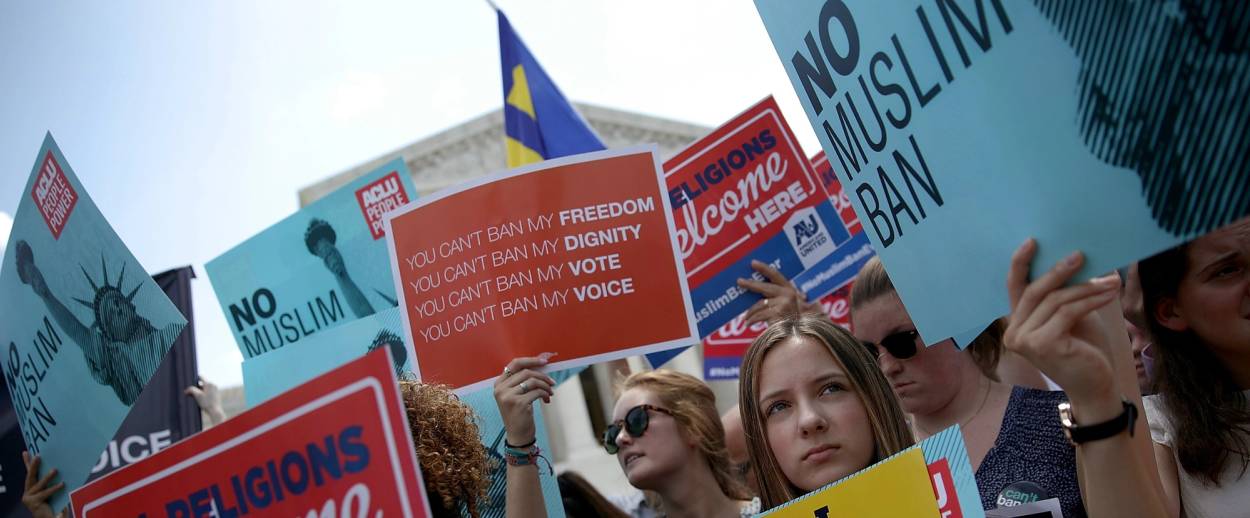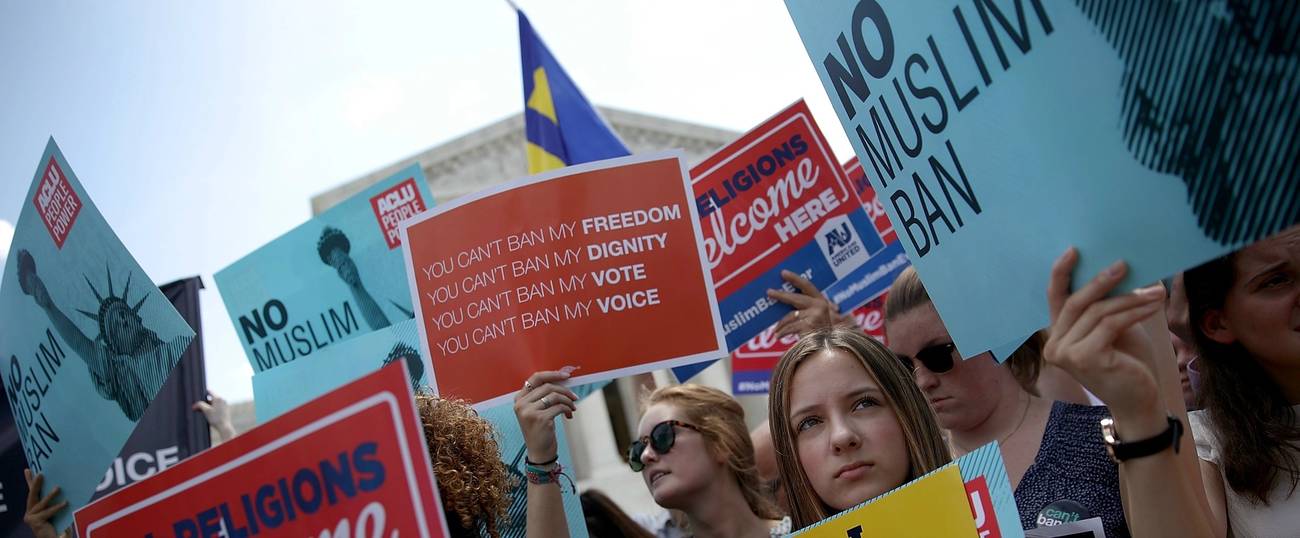My Own Private Travel Ban
When I finally visited a Muslim nation I was afraid people wouldn’t take kindly to a yarmulke-wearing, bearded, Orthodox Jew like me. Then I realized human kindness always trumps government strictures.




The Supreme Court’s decision yesterday to uphold the travel ban is complex and fraught. So is travel, especially if you’re a bearded Jew who wears a yarmulke and your destination is a Muslim country that bans Israelis from entering and just voted for a leader who prides himself on being openly anti-Semitic.
Listening to the pundits parse the court’s reasoning brought me back to my recent trip to Malaysia. I was nervous before going in much the same way I imagine folks from Iran or Somalia are nervous before boarding a plane and coming here, where Trump is president and where the atmosphere can be less than welcoming. I embarrassingly shared my jitters with my Palestinian friend Abdel, after he gifted me a small bottle of perfume he’d brought back from Mecca. In a Muslim country, he said, “If someone offers you perfume, you must accept it.”
Anxious at the reception I might receive in Kuala Lumpur, I slipped the small bottle into my bag. I imagined sitting in a Malyasian taxi and being outed as a Jew. I pictured the driver lunging at me, and then imagined reaching right for my perfume and offering it to him, knowing he couldn’t refuse. This small bottle, I thought, mocking my own anxiety, may very well facilitate the beginning of a beautiful friendship.
When I was done daydreaming about fantastical attacks in the back seat of a cab, I decided to do some real research. The Orthodox Jewish traveler Facebook groups I perused did little to assuage my fears, featuring many stories of Jews being sent home from Kuala Lumpur’s airport after a border agent searched their bags and found books in Hebrew. I realized that America’s travel ban was very different in purpose and implementation, and yet, with every story I read of a Jewish traveler harassed at the airport, all I could think about were the Muslims now banned from visiting the city where I was born and where I’d spent most of my life. Did they, too, go online only to read stories of men and women who looked like them turned away at the border?
Vowing to be rational, I took my tefillin out of its protective bag, because the bag had Hebrew letters on it. It was the first time ever I’d done so. I hid the boxes and straps deep under two weeks’ worth of socks and underwear. I also booked a flight that landed after midnight, reasoning that the more tired the border agents were, the less likely to single me out as a Jew and send me home.
Standing on line shortly after landing, I fiddled with the cool hat that hid my kippah and made me look less like an Orthodox Jew and more like a hipster from Brooklyn. I was nervous, but I could think of little save for the Muslim men and women detained at JFK and elsewhere. We were worlds apart, and yet no one in the world felt closer to me at the moment. The border-agent stamp interrupted my reveries: I was let in with no drama. The cab ride to the hostel was just as uneventful. My little bottle of perfume never came out of my bag. My room at the hostel was ready and welcoming with AC. I felt very much at ease.
The next morning, feeling much calmer, I left the hostel and decided to wear my pink kippah, my gay-pride one. Exploring the city, I passed a storefront that had just opened and caught the eye of the proprietor. He smoked and wore a white shirt, dark pants, and sandals. As I passed, he looked me over and asked where I was from, in a halting and almost accusatory fashion. I told him the States, and he asked what I was looking for. He correctly surmised that I was seeking something, but incorrectly didn’t sense my fear. I then realized that I had left my shield, the cologne, back in my room. Instead of admitting the truth, that I was scared, I told him I was looking for coffee. My fatigue wore down my concern, and I followed him through a back alley with promises of caffeine. We walked into an eatery with fans that turned and did nothing to reprieve us from the 90-degree weather. Seated at plastic tables with place mats, he confidently ordered drinks.
We had little to say to each other, mainly because he spoke little English and I spoke no Malay, but soon the coffee arrived and we drank together. The coffee was terrible, but the milk was thick and syrupy. I kept checking the time as I didn’t want to miss my connecting flight later that morning. As soon as I mentioned the airport, the man offered to drive me there. I accepted, certain now that it wasn’t a ruse to kill me but merely a gesture of goodwill to a nervous stranger, the kind of gesture I’d like to think I’d make to an apprehensive traveler I met in New York, the kind of gesture that makes the stern decisions of governments look almost silly and far away from the compassion and connection of human life.
When I unpacked weeks later, I found the bottle of perfume nestled in my knapsack’s nook. There was no need for it after all, no reason at all to be afraid.
Eli Reiter is an educator and graduate student at the University of Chicago. His writing has appeared in the New York Times, Washington Post, and Slate, among other outlets. He is working on a book now. He can be found on Twitter at @AlreadyEli. You can read more of his work and contact him at elireiter.com.